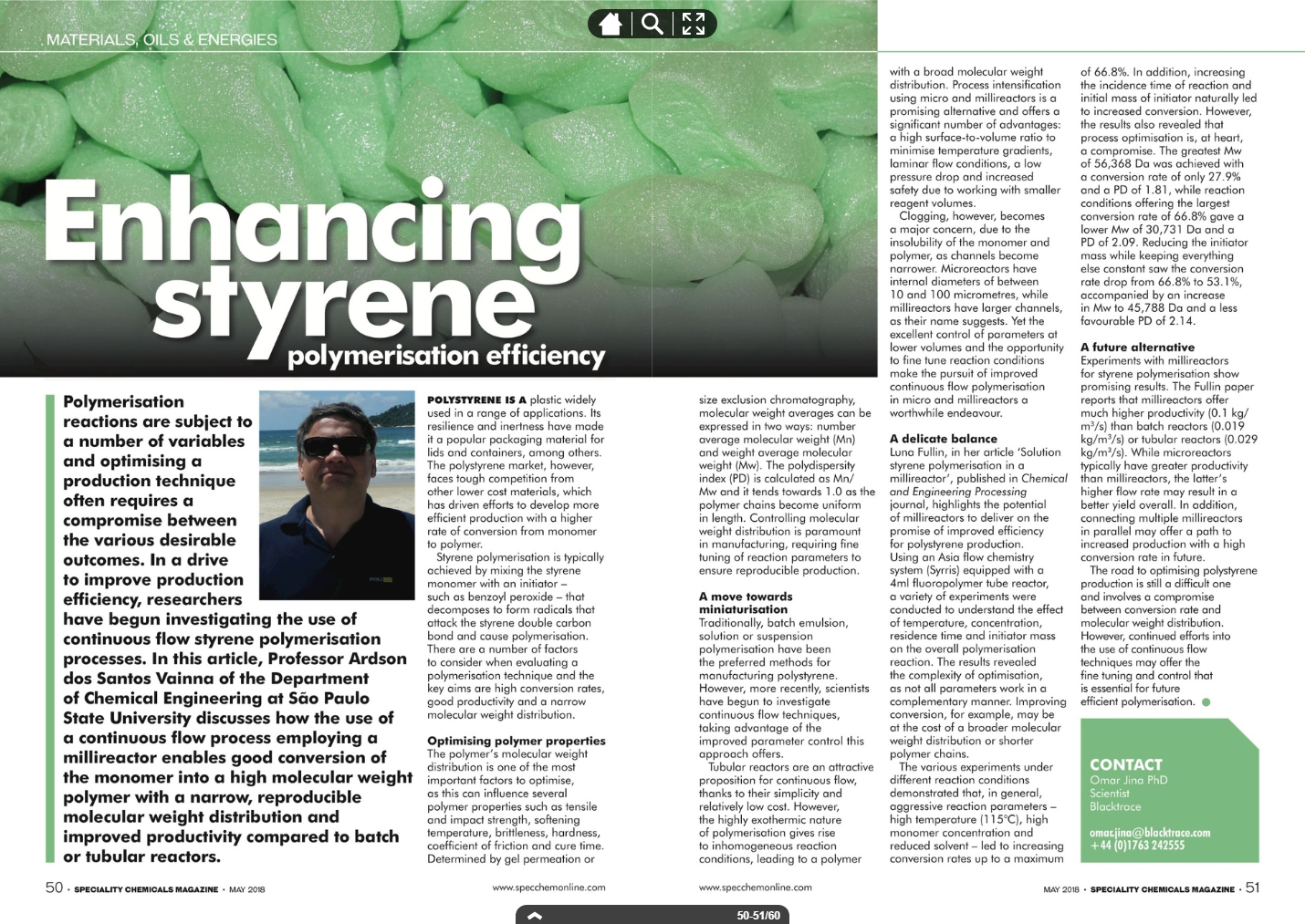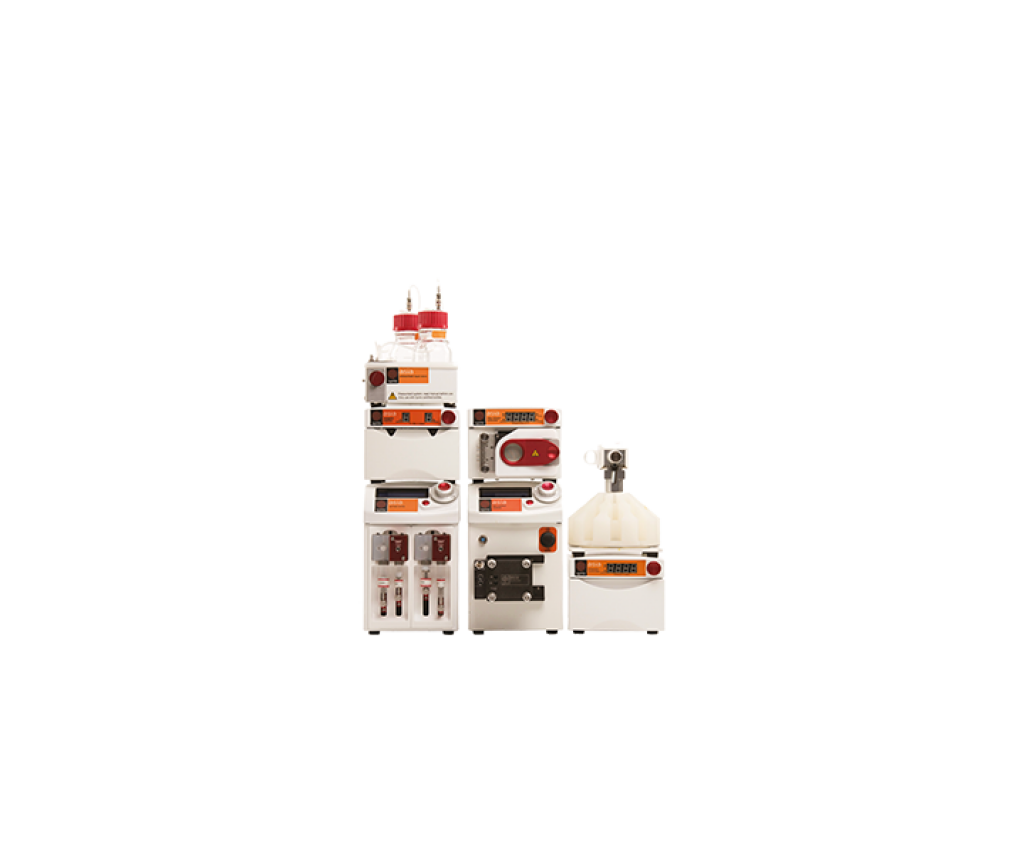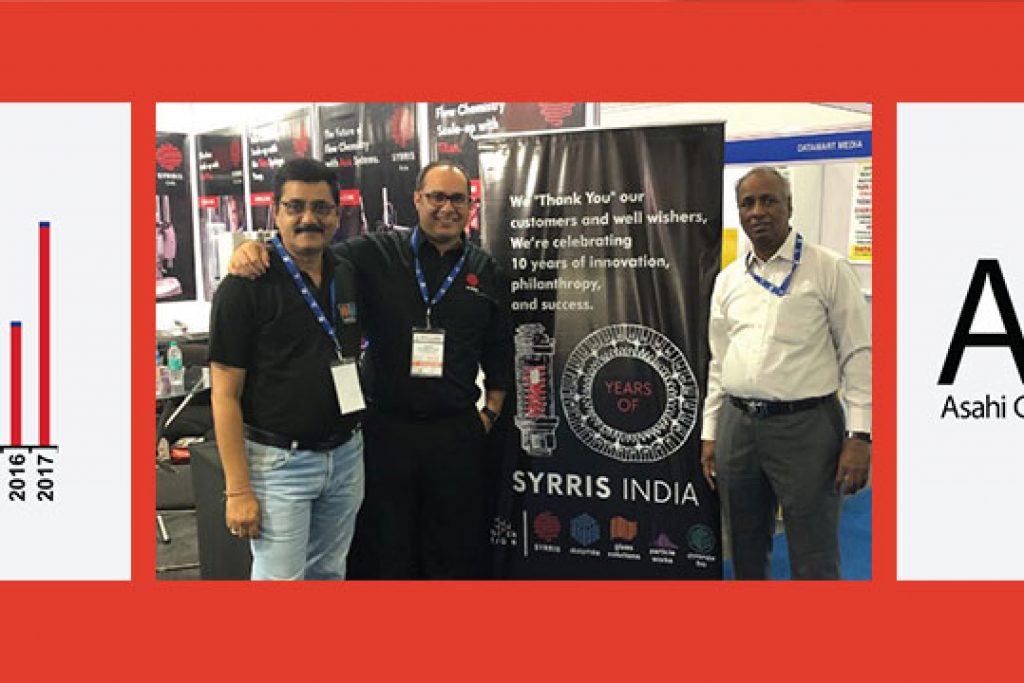Syrris Asia increases efficiency of styrene polymerization
In an article published in the May edition of Speciality Chemicals Magazine, Professor Ardson dos Santos Vianna, Department of Chemical Engineering, São Paulo State University, discusses how the use of a continuous flow chemistry process in a Syrris Asia Flow Chemistry system enhances the efficiency of styrene polymerization. This article discusses how the use of a continuous flow process employing a millireactor enables good conversion of the monomer into a high molecular weight polymer with a narrow, reproducible molecular weight distribution and improved productivity compared to batch or tubular reactors.
Read the article here
Polystyrene is a widely used plastic for a range of applications; its inertness and resilience makes it a popular packaging material among many other uses. However, the introduction of other lower cost materials has driven new efforts to improve the efficiency of the production process of polystyrene. The polymerization of sytrene is typically performed by mixing the styrene monomer with an inhibitor such as benzoyl or peroxide; the inhibitor decomposes to form radicals that attack the double carbon bond of styrene and cause polymerization, and it is this conversion that Professor Ardson dos Santos Vianna improved using flow chemistry methods.
Interested in learning more about polymerization, its uses in industry, and methods of performing polymerization chemistry? Discover our Polymerization Applications page here.


